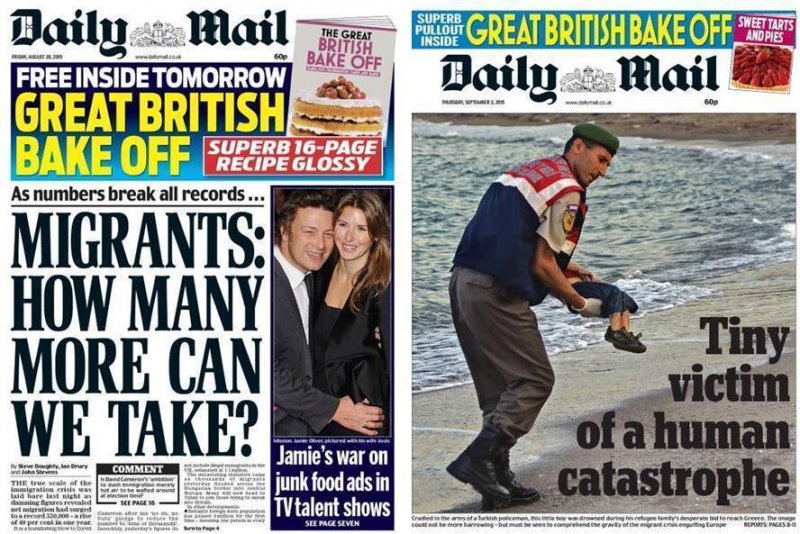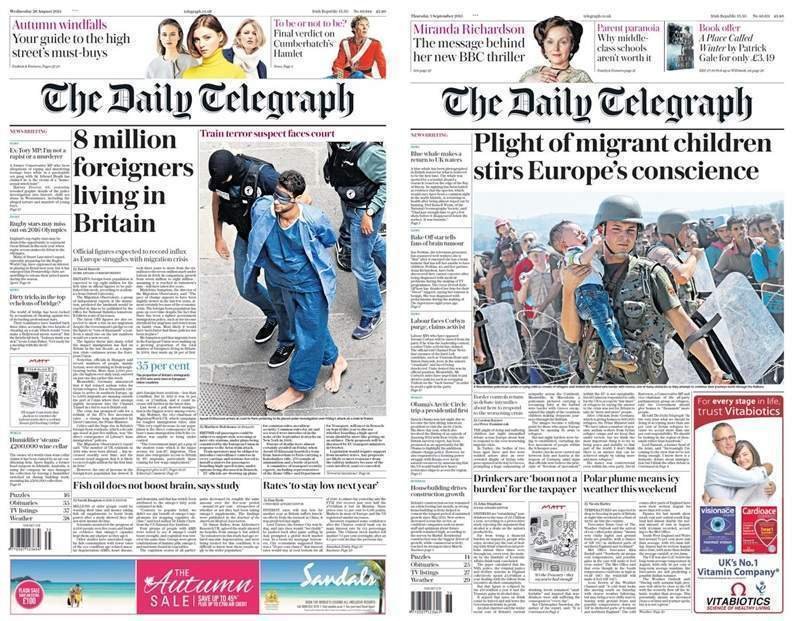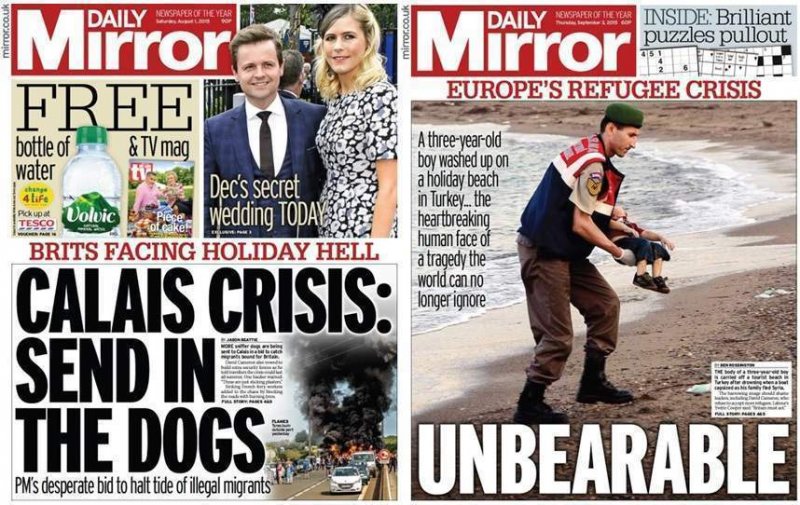
Contains distressing images.
The UK press has united in urging the government to soften its stance on the record numbers of people migrating to Europe. The reason? A series of distressing photos of the body of a three-year-old Syrian boy, face down in the sand on the Turkish coast.
Most papers decided to run one or more of these pictures on their front pages, accompanying headlines entreating David Cameron to take notice. While your mole wholeheartedly supports this message, it can’t help noticing the sudden u-turn executed by certain newspapers on the subject of the refugee crisis.
First, they used to call them “foreigners” and “migrants” (a term that has rapidly lost its neutrality in the reporting of the crisis) who were flooding Europe and on the way to “swarm” the UK. Now they’ve discovered that these people are victims and refugees who need saving.




Photos: Twitter/suttonnick
The Sun went so far as to run a column by Katie Hopkins five months ago in which she referred to them as “cockroaches” and “feral humans”. She wrote:
Show me pictures of coffins, show me bodies floating in water, play violins and show me skinny people looking sad. I still don’t care. Because in the next minute you’ll show me pictures of aggressive young men at Calais, spreading like norovirus on a cruise ship. Make no mistake, these migrants are like cockroaches.

Photo: Twitter
Now the same paper is urging the government not to “flinch” from taking in “desperate people”, those in a “life-and-death struggle not of their own making”:

Photo: Twitter/@Yorkskillerby
And the Daily Mail still seems confused:
It’s not really the time for media navel-gazing, but perhaps the papers that have only just realised the refugees’ plight can look closer at the language they’ve been using. It may have contributed to the “dehumanising” effect for which Cameron and co are now being condemned.





